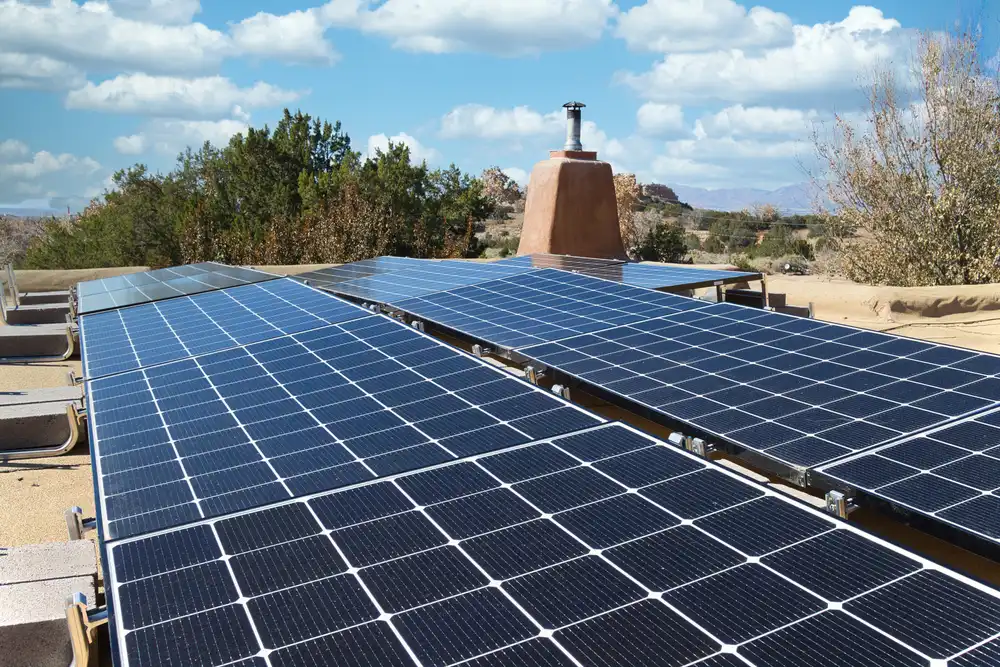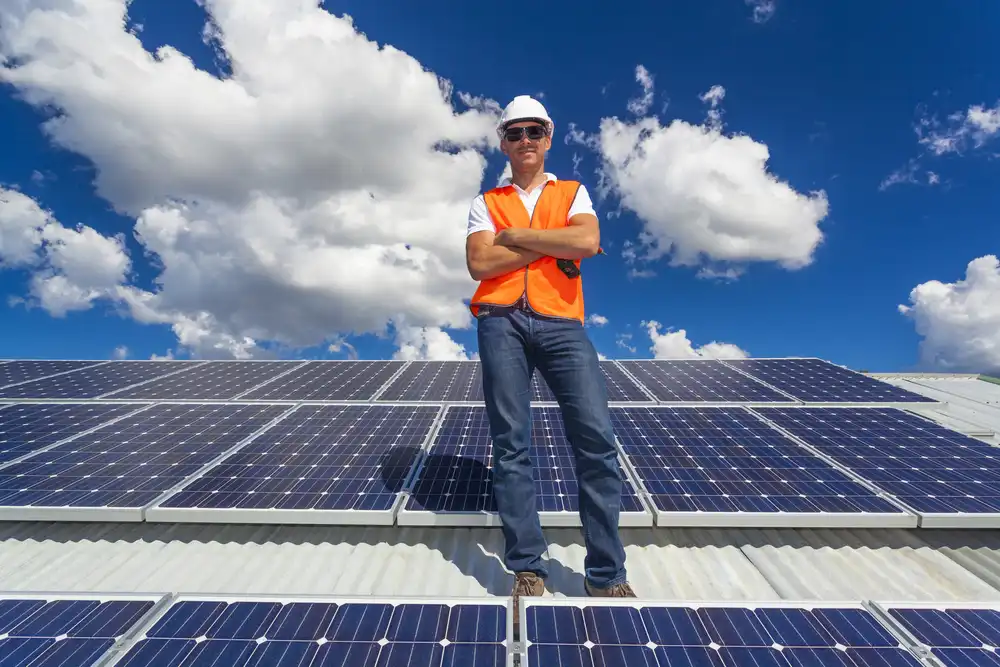When it comes to solar panel installations, there’s an old debate about whether a flat or pitched roof works best. It’s not just about aesthetics. In busy cities where space for real estate is at a premium, knowing about the dynamics of installing solar panels on a flat roof can be a proverbial game-changer. Flat roofs have a number of unique advantages for a solar panel installation, and one of them is the ability to optimize angles for the most amount of sunlight exposure.
Panels that are installed on flat roofs can tilt up to 30 degrees, which can boost energy production by a significant amount. The installation process is also straightforward, because flat roofs have a more expansive surface area that’s often free from obstructions (such as chimneys and vents). This is what gives them an advantage over pitched roofs. Because it will use the space more efficiently, the installation and maintenance will be less of a hassle.

Understanding the Dynamics of a Flat Roof Solar Installation
When it comes to performing a solar panel installation on a flat roof, there’s a lot more going on than you may think. It’s not just about mounting the panels on a rooftop. The process involves multiple layers of complexity. Flat roofs are commonly used in urban environments, but they also have a number of advantages when it comes to solar panel installation. Some of them include the following:
- Optimal Angles — Solar panels that are installed on flat roofs can be tilted up to 30 degrees, which will optimize their production throughout the day.
- Space Efficiency — Because flat roofs have no obstructions, you’ll be able to take advantage of every square inch of available space.
- Easier Installation — Because their geometry is less complex, the installation process will go a lot more smoothly.
While a flat roof solar installation has its advantages, there are some things you have to take into consideration. These include the following:
- Drainage Issues — Water pooling on flat roofs is a major concern, but there are slope management techniques and drainage systems that can mitigate this issue.
- Structural Integrity — Depending on your property’s age and condition, you may need to determine if your flat roof can handle the extra weight of the panels and mounting system.
- Aesthetic Choices — You may be concerned about the aesthetic appeal of installing solar panels on a flat roof, but modern mounting solutions are designed to keep a low profile (all while maintaining efficiency).
Be sure to speak to a professional for more information.
The Benefits of Installing Solar Panels on a Pitched Roof
Pitched roofs have their own advantages when it comes to installing solar panels. This can make it a more compelling option for homeowners and businesses. While flat roofs often steal the spotlight with their spaciousness and simpler installation, pitched roofs have some unique benefits that should not be overlooked. Some of them include the following:
- Optimal Sun Exposure — If they’re in the right orientation, solar panels that are mounted on a pitched roof can capture sunlight more efficiently throughout the day.
- Natural Drainage — Pitched roofs are designed for more efficient water drainage, which will minimize the risk of water pooling (a common problem for flat roofs). This will reduce the risk of leaks and water damage.
- Aesthetics and Property Value — Pitched roofs have a classic architectural charm that can enhance a home’s curb appeal. Research has also shown that homes with a solar panel installation can see a 4% increase in property value.
- Less Structural Modifications — In many situations, installing solar panels on a pitched roof will require fewer structural modifications than if they were installed on a flat roof. This can not only save you more money upfront but can also lower your maintenance costs.
- Improved Air Circulation — Solar panels that are installed on pitched roofs will have better airflow than on flat roofs. Proper ventilation will keep the panels cool. This will keep them from overheating, which can reduce their efficiency by up to 20%.
Be sure to speak to a professional for more information.

Weight Considerations for a Solar Panel Installation
A typical solar panel will weigh about 40 pounds. When you multiply that by several dozen, you’re looking at a significant amount of weight sitting on your roof. A typical residential system may have 20-25 panels, which can translate to over 1,000 pounds. This is where knowing your home’s structural integrity becomes important.
If you’re thinking about installing solar panels and want to find one of the best solar panel installation companies in Corpus Christi, be sure to reach out to Solar Power Integrator.
